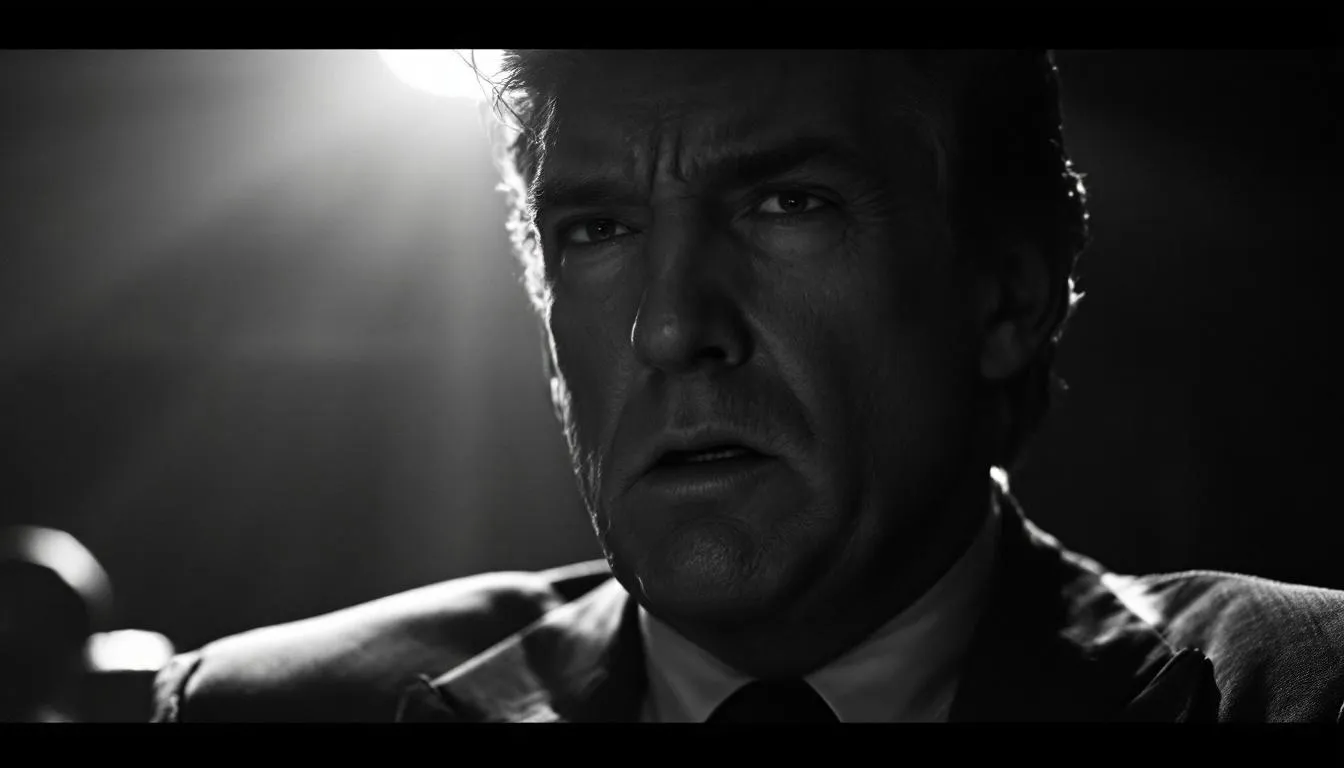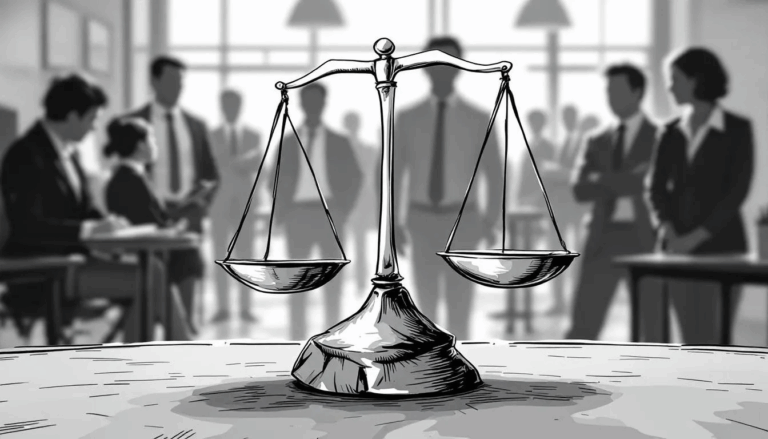Testifying in court might seem overwhelming, but it’s a crucial role in the justice process. In this guide, you’ll learn what to expect when testifying, how to prepare effectively, and tips for delivering your testimony clearly and truthfully. Understand the importance of your role and get the confidence you need to be a reliable witness.
Key Takeaways
- Always tell the truth on the witness stand; lying can lead to serious legal consequences.
- Prepare thoroughly by reviewing documents and discussing your testimony with legal professionals to boost your confidence.
- Stay calm during cross-examination and focus on clear communication, as your demeanor can impact how the jury perceives your credibility.
Understanding the Oath and Legal Obligations

Testifying in court might seem overwhelming, but it’s a crucial role in the justice process. Courts are the legal venues where testimony is given and legal proceedings are overseen.
When you step onto the witness stand, the first thing you’ll do is take an oath or affirmation. This is more than just a formality; it’s a solemn promise to tell the truth, the whole truth, and nothing but the truth. This oath serves a dual purpose: it has both moral and legal implications. Lying under oath can lead to perjury charges, which is a serious legal issue.
The specific wording of the oath can vary, but its essence remains the same: you are obligated to testify truthfully. Honest testimony is the backbone of the criminal justice system, ensuring its integrity and effective functioning. Remember, the primary responsibility of a witness is to tell the truth.
Truthfulness on the witness stand is non-negotiable. It aids the court in reaching a fair verdict and shields you from legal consequences. Take a moment to understand the seriousness of the oath and fully commit to honesty.
Preparation Before Testifying

Effective testimony starts with thorough preparation. Begin by understanding the subpoena, which mandates your court appearance and testimony. Consulting with your lawyer will clarify your rights and responsibilities as a witness. It is important to work closely with your own lawyer to ensure your legal rights are protected and to receive personalized guidance throughout the process.
Discuss your testimony with the Deputy Prosecutor, defense attorney, or defense investigator beforehand. These conversations will prepare you for what to expect and how to frame your answers regarding the prosecution. If you have questions, reach out to the Victim-Witness Coordinator, the Deputy Prosecutor, or a victim advocate for guidance.
Another important step is reviewing relevant materials. Examine any documents or evidence related to your repeated testimony, including text messages and other digital communications, to refresh your memory, but avoid compromising privileged information. Adequate preparation enhances your confidence and credibility on the stand, and being well prepared can further support your case.
Aim to present your testimony clearly and truthfully. To maintain a disciplined approach during both direct and cross-examination:
- Avoid volunteering unnecessary information, as it can complicate your testimony and harm your credibility. Additionally, aim to avoid mannerisms that may distract from your message.
- Stick to the facts.
- Answer only what is asked. For more volunteer information, refer to the guidelines provided.
Preparation may involve additional steps or considerations when testifying in criminal cases, such as understanding the unique challenges and trial process.
Final Preparation: Last-Minute Readiness for the Stand
As your day in court approaches, taking a few final steps can make all the difference in how you perform on the witness stand. Start by reviewing your deposition testimony and any previous statements you’ve made about the case. Consistency is key—make sure your answers during direct examination match what you’ve said before, and that you’re clear on the facts of your testimony.
Take a few deep breaths and remind yourself that feeling nervous before a trial is completely normal. Focus on the legal issue at hand and your specific role as a witness. Go over the questions asked during direct examination so you’re prepared to answer them truthfully and confidently. If you’re unsure about any part of your testimony, discuss it with your attorney before you take the stand.
Being well-prepared means you can answer questions clearly and accurately, helping the court understand your perspective. Remember, your job as a witness is to provide honest, reliable testimony that supports the search for truth in the courtroom.
The Role of Direct Examination
Direct examination is your attorney’s opportunity to ask you questions that will help build their case, called direct examination. Lawyers are trained to guide witnesses through the process and handle any objections that may arise. These leading questions are typically open-ended, encouraging you to provide detailed responses rather than simple yes or no answers. This approach allows you to tell your story in your own words, providing the jury with a comprehensive understanding of the facts.
During direct examination, listen carefully to each question and answer fully and truthfully. This is your opportunity to present your side of the story clearly and convincingly. Stay focused, take your time, and rely on your attorney for guidance.
Navigating Cross-Examination while Testifying
Cross-examination can be the most challenging part of testifying for the defendant on the other side. The defense attorney will ask you cross examination questions to test the accuracy and reliability of your testimony. Pay close attention to each question before answering. This helps prevent misunderstandings and ensures that your responses are accurate.
If a question is unclear, follow these guidelines:
- Ask for clarification or request the important questions asked to be rephrased.
- It’s better to seek clarity than to risk giving an incorrect answer.
- Wait for the entire question to be asked before responding.
- Demonstrate thoughtfulness and a commitment to truthful answers.
During cross-examination, keep the following guidelines in mind:
- Avoid guess or speculating.
- If unsure of an answer, it’s acceptable to say so.
- Avoid guessing as it can damage your credibility and complicate proceedings.
- Refrain from volunteering unasked information.
- Stick to answering only the questions posed to you, as providing extra information can lead to confusion and weaken your testimony.
Politeness and composure during cross-examination are vital. This helps manage stress and convey control. If you feel overwhelmed, take a moment to regain your composure before answering. This will help you stay focused and deliver your testimony effectively.
Working with the Other Side: Professionalism and Interactions with Opposing Counsel
When it’s time for cross examination, you’ll be questioned by the defense attorney or opposing counsel. It’s important to remain professional and composed, even if the questions asked feel challenging or uncomfortable. Listen carefully to each question before you answer, and don’t let yourself get defensive or emotional—this helps maintain your credibility as a witness.
The defense attorney’s job is to test your testimony and look for inconsistencies, so stay calm and answer only what is asked. If you don’t understand a question, politely ask the attorney to repeat or clarify it. There’s no harm in taking a moment to think before you respond.
Avoid arguing with the attorney or trying to “win” the exchange. Your role is to provide clear, truthful answers—not to debate. By staying focused and professional during cross examination, you help ensure that your testimony is taken seriously by the court and the jury.
Effective Communication on the Witness Stand

Effective communication is key to being a credible witness. Using clear and steady speech ensures that the jury can fully comprehend your testimony. Confidence and straightforwardness inspire the court’s confidence in you. Your manner of testimony plays a crucial role in shaping the judge and jury’s view of your credibility and hearing. It can significantly influence their perception of your truthfulness and word. When you speak, it can enhance your overall impact.
Maintaining eye contact with the jury helps establish a connection and reinforces your credibility. Your body language also plays a critical role. Sitting upright and avoiding fidgeting can positively influence how jurors perceive your reliability. Remember, your goal is to be perceived as a trustworthy and reliable witness.
Responding accurately and courteously, especially during cross-examination, is essential for maintaining your credibility. Taking time before answering questions shows that you are conscientious and concerned about truthfulness. Keep your answers focused and avoid actions that might make you appear upset or discourteous. If questions are posed, ensure they are answered thoughtfully.
Testifying Etiquette: Courtroom Behavior and Decorum
Your behavior on the witness stand can have a big impact on how your testimony is received. Dress professionally and show respect for the court, the judge, and everyone present in the courtroom. Avoid mannerisms like chewing gum, fidgeting, or making exaggerated gestures, as these can distract from your words and affect how the jury perceives you.
When answering questions, speak clearly and use your own words. Always tell the whole truth—don’t withhold information or give misleading answers. If you need to refer to notes or documents, ask the court reporter or attorney for permission before doing so, and only use them when necessary.
Remember, your answers should be direct and focused on the question asked. Avoid volunteering extra information unless specifically requested by the attorney. By following these etiquette tips, you’ll present yourself as a credible, trustworthy witness and help the court get the information it needs to reach a fair decision.
Handling Objections and Interruptions

Objections are a common part of courtroom proceedings, serving to ensure that the rules of evidence are followed. When an attorney objects, it’s important to stay calm and pause to allow the judge to rule on the objection. This ensures that the courtroom decorum is maintained and that you don’t inadvertently undermine your testimony or argue against the established procedures.
If an objection is sustained, the attorney may withdraw or rephrase only the question. As a witness, your role is to focus on answering the questions posed to you and not to make objections yourself. Staying calm and composed during these interruptions helps you maintain your credibility and stay focused on your testimony, even if you must remain silent.
Maintaining Composure Under Pressure
It’s normal to feel nervous when testifying, but managing those nerves is crucial. Here are some ways to help manage your nerves:
- Take deep breaths to alleviate stress and anxiety.
- If you need a moment to collect your thoughts, pause.
- Take a sip of water before answering questions.
Staying calm and composed during cross-examination projects maturity and positively influences juror perceptions. Relaxed witnesses often perform better, while frazzled ones tend to struggle with fear. Understanding the serious nature of court proceedings can motivate you to stay calm and focused in your job.
Remember, staying composed not only helps you deliver your deposition testimony more effectively but also enhances your credibility in the eyes of the jury. Taking these tips will help you present your story with more thought, clarity, and confidence, as you want to ensure that what happened you say is heard in other forms. If you need to, you can even chew gum to help calm your nerves. You want to make sure that your message is clear so that the jury can hear it well.
Post-Testimony Steps
After your testimony, it’s important to debrief with your attorney. They can provide feedback and address any concerns you might have. This is also a good time to discuss any follow-up steps or additional information that might be needed. Additionally, consulting with attorneys can offer further insights, as advised.
Having a support person can provide emotional reassurance during court proceedings. Sharing your experience with someone you trust can help alleviate stress and provide a helpful sense of closure after testifying. Remember, your role in the justice system is crucial, and having support can make the process more manageable.
Summary
In summary, mastering the art of testifying involves understanding your legal obligations, preparing thoroughly, communicating effectively, and maintaining composure under pressure. Each step, from taking the oath to handling cross-examination, plays a critical role in ensuring that your testimony is impactful and credible.
By following these tips and strategies, you can approach the witness stand with confidence and clarity. Remember, your testimony is a vital part of the justice system. So take a deep breath, stay calm, and let your truth be heard.
Frequently Asked Questions
1) What should I do if I don’t understand a question during cross-examination white testifying?
If you’re confused by a question during cross-examination, just ask for clarification or to have it rephrased. Never hesitate to make sure you fully understand before answering!
2) How can I manage my nerves while testifying?
To keep your nerves in check while testifying, just remember to take deep breaths and maybe sip some water before you answer. It really helps you stay calm and focused!
3) Why is it important to maintain eye contact with the jury?
Maintaining eye contact with the jury is crucial because it builds a connection and boosts your credibility as a witness. It shows you’re engaged and confident, making your testimony more impactful.
4) What should I do if an attorney objects during my testimony?
If an attorney objects while you’re testifying, just stay calm and pause until the judge decides on the objection. If it’s sustained, the attorney will likely rephrase or withdraw their question.
5) How can I ensure I am well-prepared for my testimony?
To be well-prepared for your testimony, make sure you understand the subpoena, talk it over with your attorney, and go through any relevant materials. This way, you’ll feel confident and ready on the big day. If you believe you have a potential claim that will involve testifying, please click here for a free tool that can help you evaluate your claim.



